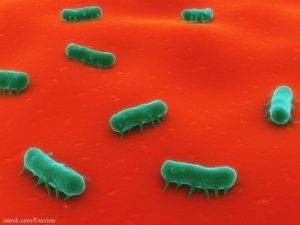A Salmonella detection assay developed by 3M Food Safety has received certification for all food categories and environmental products after an AFNOR CERTIFICATION expert committee deemed it effective than standard methods for detecting Salmonella in seafood, vegetables and environmental samples. The 3M Molecular Detection Assay Salmonella had already been recognized by the committee as the superior format for detecting the pathogen in eggs, meat and dairy products.
 The 3M Molecular Detection System, which also has assays for the detection of E.coli, Listeria and Salmonella, “uses isothermal DNA amplification and bioluminescence detection technologies” to find pathogens, according to the company. On the market since 2011, it is now used in at least 33 countries.
The 3M Molecular Detection System, which also has assays for the detection of E.coli, Listeria and Salmonella, “uses isothermal DNA amplification and bioluminescence detection technologies” to find pathogens, according to the company. On the market since 2011, it is now used in at least 33 countries.
“It’s a great accomplishment that this technology has been comprehensively validated to detect such a common and harmful organism throughout the world,” said Niki Montgomery, global marketing manager for 3M Food Safety. “Its increasingly proven accuracy is a perfect complement to its simplicity and ease-of-use.”
Salmonella is one of the leading causes of food poisoning worldwide. In the U.S. it is estimated to sicken more than 1 million people each year. So far this year, the Centers for Disease Control and Prevention (CDC) has announced two multi-state food poisoning outbreaks, both of them were caused by Salmonella. A January outbreak associated with ground beef tainted with Salmonella sickened 18 people in 5 states. An ongoing outbreak associated with chicken produced by Foster Farms has sickened 128 in 13 states.




